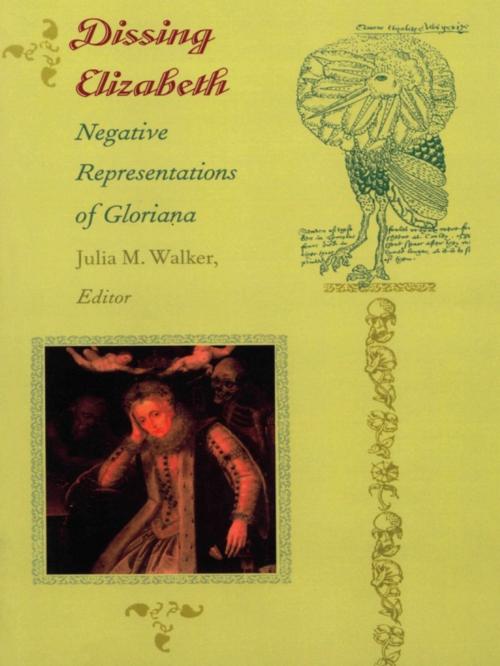Dissing Elizabeth
Negative Representations of Gloriana
Biography & Memoir, Royalty, Nonfiction, History, British, Social & Cultural Studies, Social Science| Author: | ISBN: | 9780822396604 | |
| Publisher: | Duke University Press | Publication: | April 2, 1998 |
| Imprint: | Duke University Press Books | Language: | English |
| Author: | |
| ISBN: | 9780822396604 |
| Publisher: | Duke University Press |
| Publication: | April 2, 1998 |
| Imprint: | Duke University Press Books |
| Language: | English |
Dissing Elizabeth focuses on the criticism that cast a shadow on the otherwise celebrated reign of Elizabeth I. The essays in this politically and historically revealing book demonstrate the sheer pervasiveness and range of rhetoric against the queen, illuminating the provocative discourse of disrespect and dissent that existed over an eighty-year period, from her troubled days as a princess to the decades after her death in 1603.
As editor Julia M. Walker suggests, the breadth of dissent considered in this collection points to a dark side of the Cult of Elizabeth. Reevaluating neglected texts that had not previously been perceived as critical of the queen or worthy of critical appraisal, contributors consider dissent in a variety of forms, including artwork representing (and mocking) the queen, erotic and pornographic metaphors for Elizabeth in the popular press, sermons subtly critiquing her actions, and even the hostility encoded in her epitaph and in the placement of her tomb. Other chapters discuss gossip about Elizabeth, effigies of the queen, polemics against her marriage to the Duke of Alençon, common verbal slander, violence against emblems of her authority, and the criticism embedded in the riddles, satires, and literature of the period.
Dissing Elizabeth focuses on the criticism that cast a shadow on the otherwise celebrated reign of Elizabeth I. The essays in this politically and historically revealing book demonstrate the sheer pervasiveness and range of rhetoric against the queen, illuminating the provocative discourse of disrespect and dissent that existed over an eighty-year period, from her troubled days as a princess to the decades after her death in 1603.
As editor Julia M. Walker suggests, the breadth of dissent considered in this collection points to a dark side of the Cult of Elizabeth. Reevaluating neglected texts that had not previously been perceived as critical of the queen or worthy of critical appraisal, contributors consider dissent in a variety of forms, including artwork representing (and mocking) the queen, erotic and pornographic metaphors for Elizabeth in the popular press, sermons subtly critiquing her actions, and even the hostility encoded in her epitaph and in the placement of her tomb. Other chapters discuss gossip about Elizabeth, effigies of the queen, polemics against her marriage to the Duke of Alençon, common verbal slander, violence against emblems of her authority, and the criticism embedded in the riddles, satires, and literature of the period.















